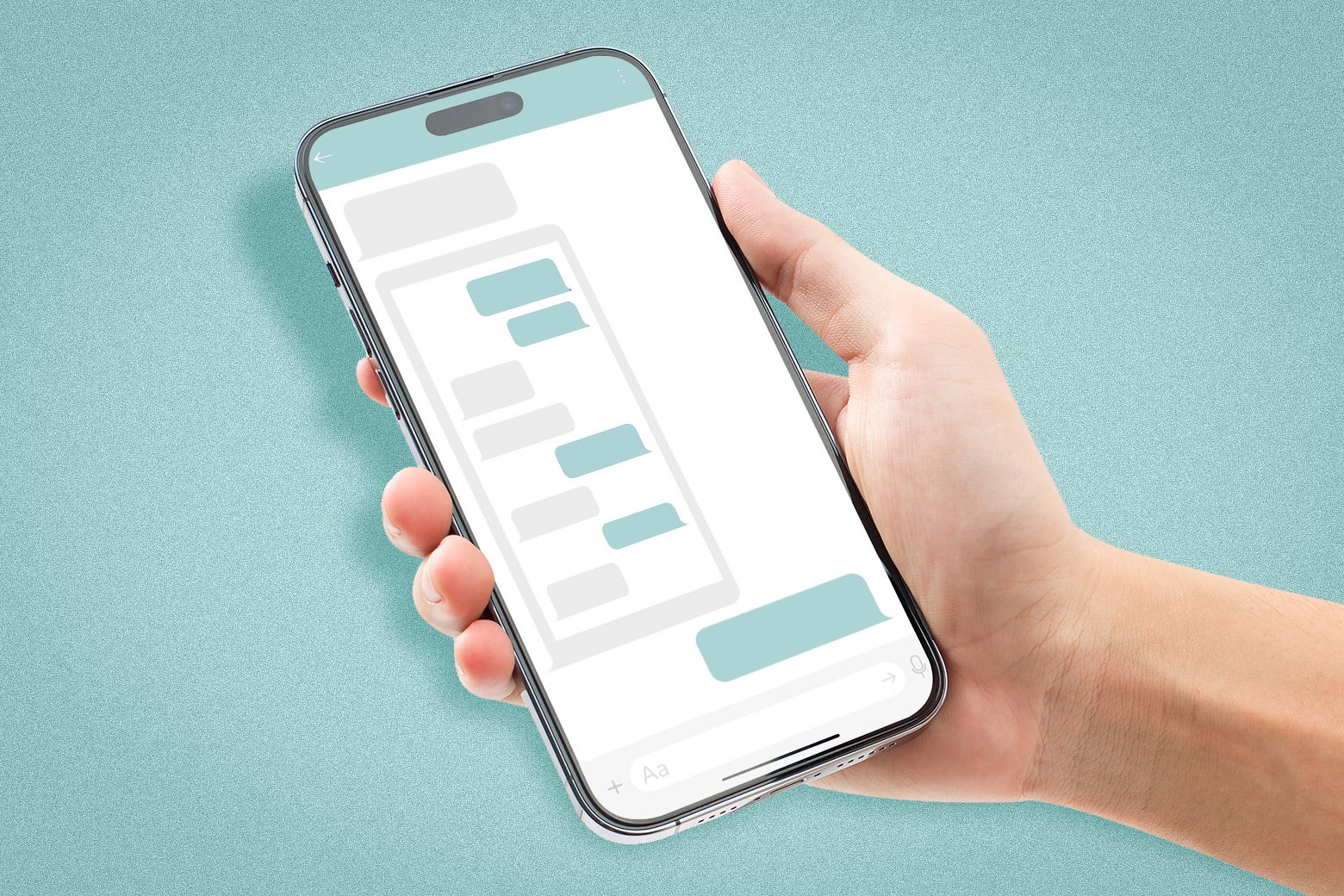When I first met my fiancé five years ago, I was incredibly anxious about the things I said to him over text. What was the perfect response? How could I come across as interested but not overeager? I couldn’t figure out the answers to these questions on my own, so I asked my friends, getting their input in real time by sending them screenshots of our conversations and asking them what I should say.
Taking screenshots of our texts and sharing them with my friends seemed totally normal at the time, and felt like something that everyone was doing. But when I began studying the privacy of emerging media as part of my Ph.D. research, I started to think critically about screenshot collection and sharing. It made me see things in a very different light.
I realized that every time a friend sent me screenshots of their conversations with others, the person on the other side had no idea that we were casually dissecting what they said. It hit me that if my friends were sending me screenshots of their conversations with others, what was stopping them from taking and sharing screenshots of our private conversations? Should I be worried that the things I said over text might be shared with other people?
The example I highlighted above is pretty innocent. In the early days of dating someone, there’s often no deeply personal information being shared that would be debilitating if dispersed further, so it’s hard to see how sharing these messages could hurt someone. But given that we sometimes do share intimate information in messages that we wouldn’t want someone to share with the rest of the world, you can easily imagine other scenarios that would be hurtful. We gossip about other people, argue about things that trouble us, and share our deepest secrets via text—sometimes without considering that the person on the other side might be taking screenshots, and other times taking it for granted that they aren’t.
All of this has become completely normal. And it’s kind of disturbing.
Sharing screenshots can damage someone’s reputation—something that has happened to celebrities and politicians (and, most recently, to actor Jonah Hill). We’ve even named these types of screenshots “receipts,” saving them on our phones to use as “evidence” later. We fail to respect the privacy of those whose (private) conversations are being shared without their knowledge or consent. We also trust that screenshots are legitimate (and complete) messages, sometimes failing to consider the lack of context or the potential that they’re fake.
Wanting to understand more about screenshot behaviors, I got to work and started researching these issues in more depth. In my recent publication with Kelsey Prena in New Media & Society, we found that young adults are more likely to take screenshots on text messaging platforms—arguably a space which is assumed to be the most private—than on other digital mediums such as Instagram, X/Twitter, or Snapchat. We also discovered that when a text messaging platform notifies people if their messages are captured by the screenshot feature (like the one implemented on Snapchat), those users feel like they have more control over the information they share and are less chilled from communication.
Importantly, many people in this study said that they would absolutely not take screenshots on platforms such as Snapchat given the embarrassment they would feel from others knowing they had done so.
I still have a lot of questions about screenshot behaviors. Why do we trust screenshots so much in the first place? Why has it become so normal to violate others’ expectations of privacy on digital messaging platforms? And is there a way to shift screenshot culture away from betrayals of privacy and trust?
I don’t think we should ban the screenshot feature altogether. It’s a useful tool for situations like saving a recipe you want to cook later, or, more seriously, documenting evidence of illegal behavior. But I do worry that we’ve gone too far, normalizing use of the screenshot feature to collect and share private text messages without giving a second thought to privacy and how screenshots could harm others. I worry that it is turning us into hypocrites who, when it comes to the privacy of our conversations, have higher expectations for how others should treat us than for how we treat others.
We need to rethink screenshot culture and establish new rules for what is acceptable and what is going too far. A good rule here would be the following: If we don’t want other people secretly taking screenshots of personal messages we send them, we shouldn’t take screenshots of their messages, either. I’ve learned from my research that having screenshot notifications encourages and enforces this kind of accountability—ultimately making people feel more comfortable sharing on digital messaging platforms. While this may diminish “receipt”-supplemented scandal, it just might save our digital—and physical—relationships.
Future Tense is a partnership of Slate, New America, and Arizona State University that examines emerging technologies, public policy, and society.
Slate is published by The Slate Group, a Graham Holdings Company.
All contents © 2024 The Slate Group LLC. All rights reserved.
Taking screenshots of messages can violate people's privacy. – Slate

